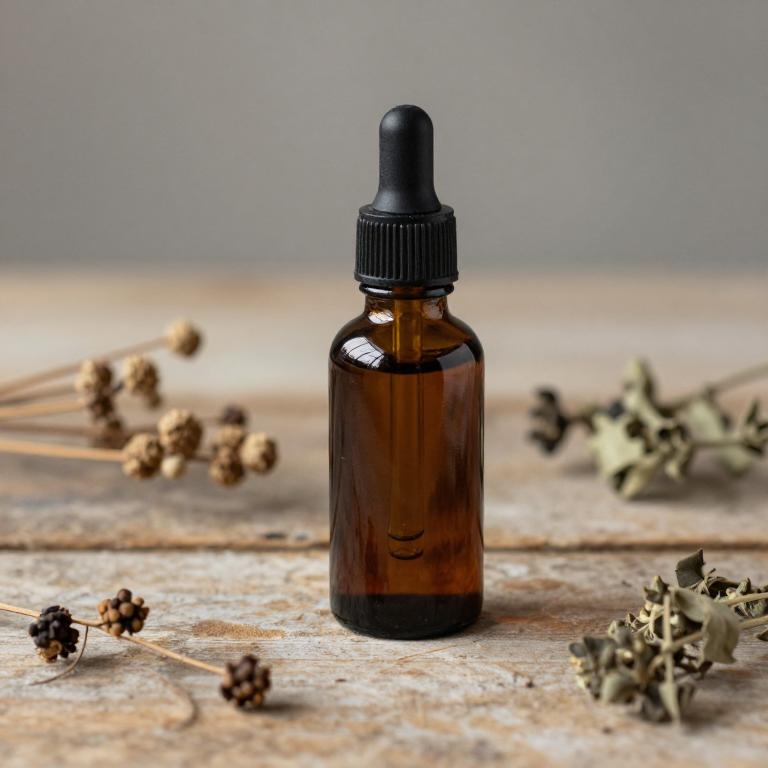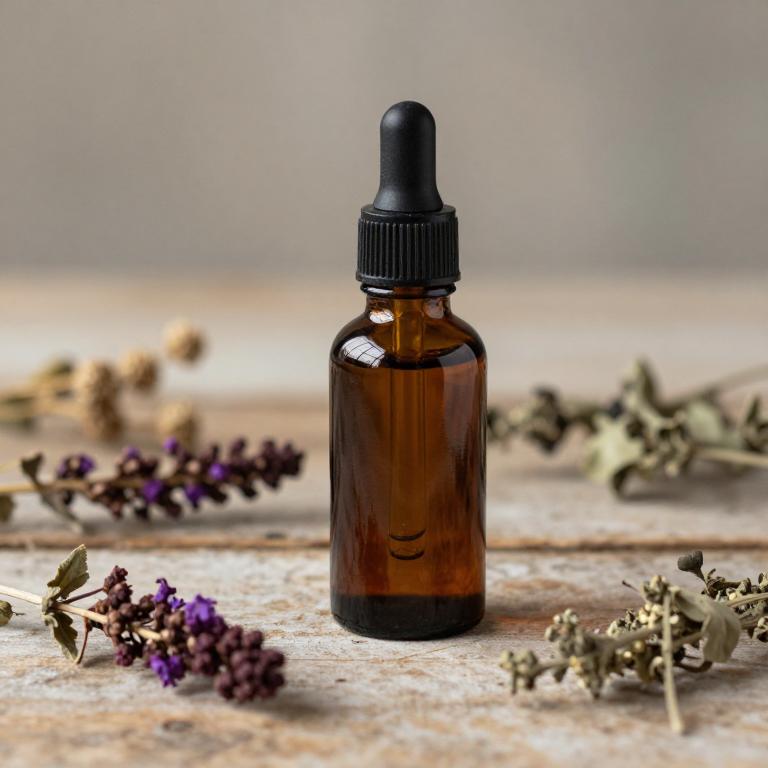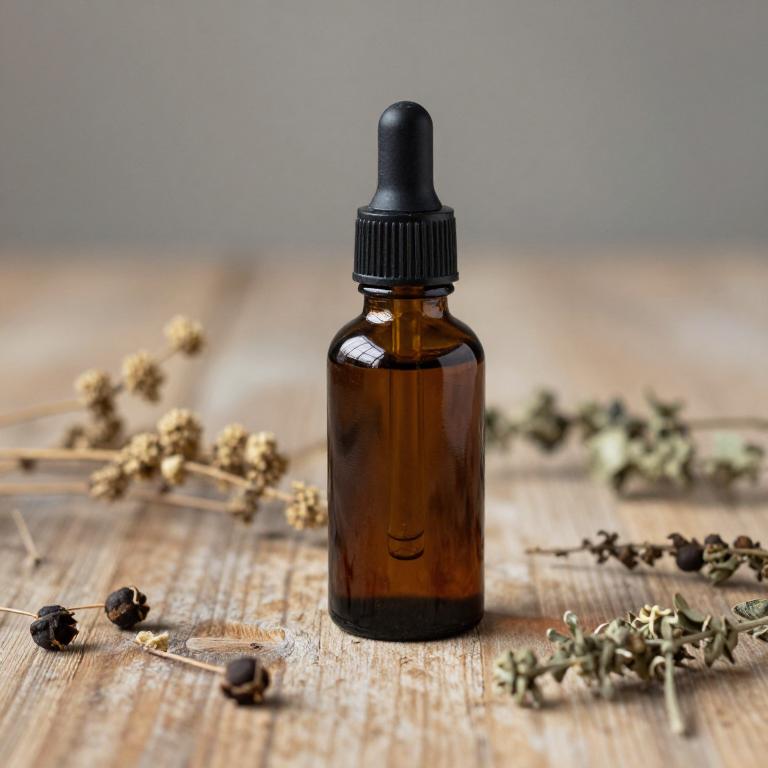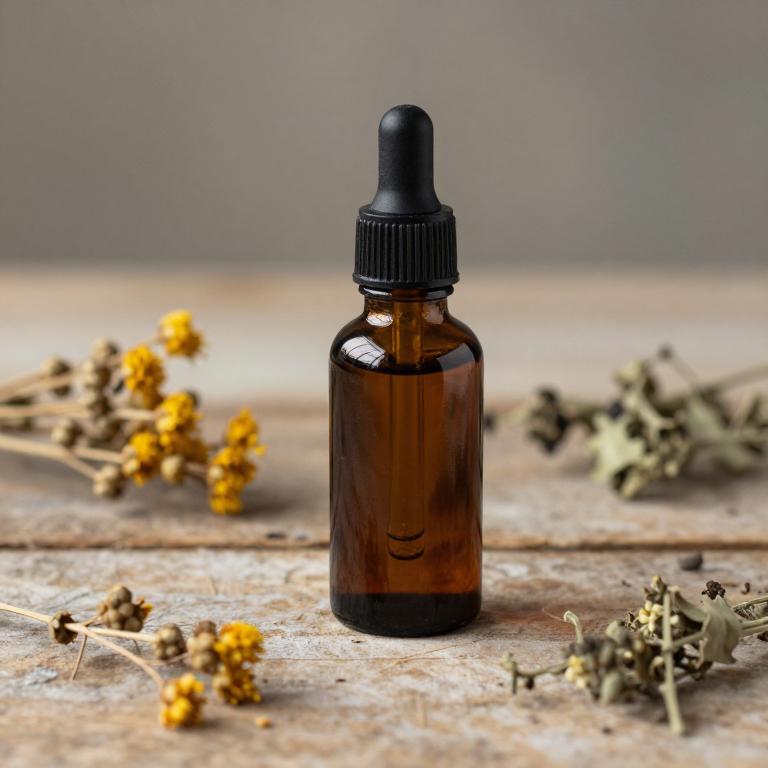10 Best Herbal Tinctures For Over Bleeding During Periods

Herbal tinctures can be a natural and effective alternative for managing heavy bleeding during menstruation, offering a gentler approach compared to conventional pharmaceuticals.
Common herbs used in these tinctures include shepherd’s purse, cramp bark, and yarrow, which are traditionally known for their ability to tone the uterus and reduce excessive menstrual flow. These tinctures work by supporting hormonal balance and improving uterine function, helping to regulate menstrual cycles and minimize blood loss. It is important to consult with a qualified herbalist or healthcare provider before use, as individual health conditions and interactions with other medications can affect safety and efficacy.
When used appropriately, herbal tinctures can provide a holistic and sustainable solution for managing heavy periods.
Table of Contents
- 1. Black cohosh (Cimicifuga racemosa)
- 2. Chaste tree (Vitex agnus-castus)
- 3. Sanguisorba (Sanguisorba officinalis)
- 4. Common hawthorn (Crataegus monogyna)
- 5. St. john's wort (Hypericum perforatum)
- 6. Thyme (Thymus vulgaris)
- 7. Heartworts (Leonurus cardiaca)
- 8. Yarrow (Achillea millefolium)
- 9. Stinging nettle (Urtica dioica)
- 10. Rosemary (Rosmarinus officinalis)
1. Black cohosh (Cimicifuga racemosa)

Cimicifuga racemosa, commonly known as black cohosh, is a traditional herbal remedy often used to alleviate symptoms associated with hormonal imbalances, including heavy menstrual bleeding.
Its tincture form is popular for its potential to regulate menstrual flow by influencing estrogen receptor activity and reducing uterine contractions. Studies suggest that black cohosh may help decrease the intensity and duration of menstrual bleeding, offering a natural alternative for women seeking relief without pharmaceutical interventions. However, it is important to consult with a healthcare provider before use, especially for those with a history of hormone-sensitive conditions.
While generally considered safe for short-term use, long-term effects and interactions with other medications should be carefully evaluated.
2. Chaste tree (Vitex agnus-castus)

Vitex agnus-castus, commonly known as chasteberry, is a herbal remedy often used to support hormonal balance, particularly in women experiencing irregular or heavy menstrual bleeding.
Its tincture form is popular for its potential to regulate the menstrual cycle and reduce excessive menstrual flow by influencing the pituitary gland and ovarian function. Studies suggest that vitex may help alleviate symptoms of premenstrual syndrome (PMS) and support the body's natural hormonal rhythms. When used as a tincture, it is typically taken in small doses, often standardized to contain a specific concentration of active compounds.
While generally considered safe, it is advisable to consult a healthcare provider before use, especially for those with existing medical conditions or who are pregnant.
3. Sanguisorba (Sanguisorba officinalis)

Sanguisorba officinalis, also known as sweet sedge, is a traditional herbal remedy often used in tincture form to address excessive menstrual bleeding.
The tincture is prepared by soaking the dried plant material in alcohol, allowing the active compounds to be extracted for medicinal use. It is believed to have astringent and hemostatic properties that help reduce blood flow during menstruation. Many herbalists recommend it as a natural alternative to pharmaceutical treatments for managing heavy periods.
However, it is important to consult a healthcare professional before using sanguisorba officinalis tinctures, especially for those with underlying health conditions or who are taking other medications.
4. Common hawthorn (Crataegus monogyna)

Crataegus monogyna, commonly known as the common hawthorn, has been traditionally used in herbal medicine for its potential benefits in managing excessive bleeding during menstruation.
The tincture form of Crataegus monogyna is often prepared by soaking the dried berries in alcohol, allowing the active compounds to be extracted for medicinal use. This herb is believed to support hormonal balance and may help regulate menstrual flow by influencing uterine function. Herbalists often recommend Crataegus monogyna tinctures as a natural alternative to conventional treatments for menorrhagia, though it is important to consult a healthcare provider before use.
While some studies suggest its efficacy, more clinical research is needed to fully understand its mechanisms and safety profile in this context.
5. St. john's wort (Hypericum perforatum)

Hypericum perforatum, commonly known as St. John's Wort, is traditionally used in herbal medicine for its potential effects on mood and hormonal balance.
While primarily known for its antidepressant properties, some studies suggest that hypericum perforatum tinctures may help regulate menstrual flow and reduce excessive bleeding during periods. The active compounds in St. John's Wort, such as hyperforin and hypericin, are believed to influence neurotransmitter activity and possibly affect hormonal fluctuations that contribute to heavy menstruation. However, it is important to note that more research is needed to fully understand its efficacy and safety for this specific use.
As with any herbal remedy, it is advisable to consult with a healthcare professional before use, especially if you are taking other medications or have underlying health conditions.
6. Thyme (Thymus vulgaris)

Thymus vulgaris, commonly known as thyme, is a herb that has been traditionally used for its antimicrobial and anti-inflammatory properties.
Thymus vulgaris herbal tinctures are often recommended for women experiencing heavy bleeding during their menstrual periods due to their potential to support hormonal balance and uterine health. These tinctures contain thymol, a powerful compound that may help reduce excessive menstrual flow by strengthening the uterine lining and promoting blood clotting. However, it is important to consult with a healthcare professional before using thyme tinctures, especially for those with existing health conditions or who are taking other medications.
While some studies suggest potential benefits, more research is needed to fully understand the efficacy and safety of thymus vulgaris in treating heavy menstrual bleeding.
7. Heartworts (Leonurus cardiaca)

Leonurus cardiaca, commonly known as motherwort, has been traditionally used in herbal medicine to address excessive menstrual bleeding.
Its tinctures are believed to have a calming effect on the uterine muscles, which may help regulate menstrual flow and reduce heavy bleeding. The herb contains compounds such as flavonoids and tannins that may contribute to its hemostatic properties. When used as a tincture, it is typically diluted in water or alcohol and taken orally in small doses.
However, it is important to consult with a qualified herbalist or healthcare provider before using motherwort tinctures, especially for those with existing health conditions or who are taking other medications.
8. Yarrow (Achillea millefolium)

Achillea millefolium, commonly known as yarrow, has been traditionally used in herbal medicine for its hemostatic properties, making it a potential remedy for heavy menstrual bleeding.
When prepared as a tincture, it is often used to support the body's natural clotting mechanisms and reduce excessive menstrual flow. The active compounds in yarrow, such as azulene and flavonoids, may help strengthen blood vessels and promote uterine tone, which can aid in managing over-bleeding. However, it is important to consult with a qualified herbalist or healthcare provider before using yarrow tinctures, especially during menstruation, as it may interact with other medications or conditions.
While some studies suggest its effectiveness, more clinical research is needed to fully establish its safety and efficacy for this specific use.
9. Stinging nettle (Urtica dioica)

Urtica dioica, commonly known as stinging nettle, has been traditionally used in herbal medicine for its potential to support menstrual health.
When prepared as a tincture, Urtica dioica may help regulate menstrual flow and reduce excessive bleeding during periods due to its high content of minerals and compounds that support blood coagulation and hormonal balance. The tincture is typically made by soaking dried nettle leaves in alcohol for several weeks, allowing the active constituents to be extracted. It is often recommended as a complementary therapy for women experiencing menorrhagia, though it should be used under the guidance of a qualified herbalist or healthcare provider.
While generally considered safe, it is important to consult with a professional before use, especially if there are underlying health conditions or if taking other medications.
10. Rosemary (Rosmarinus officinalis)

Rosmarinus officinalis, commonly known as rosemary, is a herb widely used in traditional medicine for its various health benefits.
Rosemary tinctures are often utilized to address excessive menstrual bleeding due to their astringent and anti-inflammatory properties. These tinctures contain compounds like rosmarinic acid and flavonoids, which may help in reducing uterine bleeding by strengthening blood vessels and promoting hormonal balance. When used under the guidance of a healthcare professional, rosemary tinctures can be a natural alternative for managing heavy periods.
However, it is important to note that individual responses may vary, and it should not replace medical advice or treatment for severe cases.